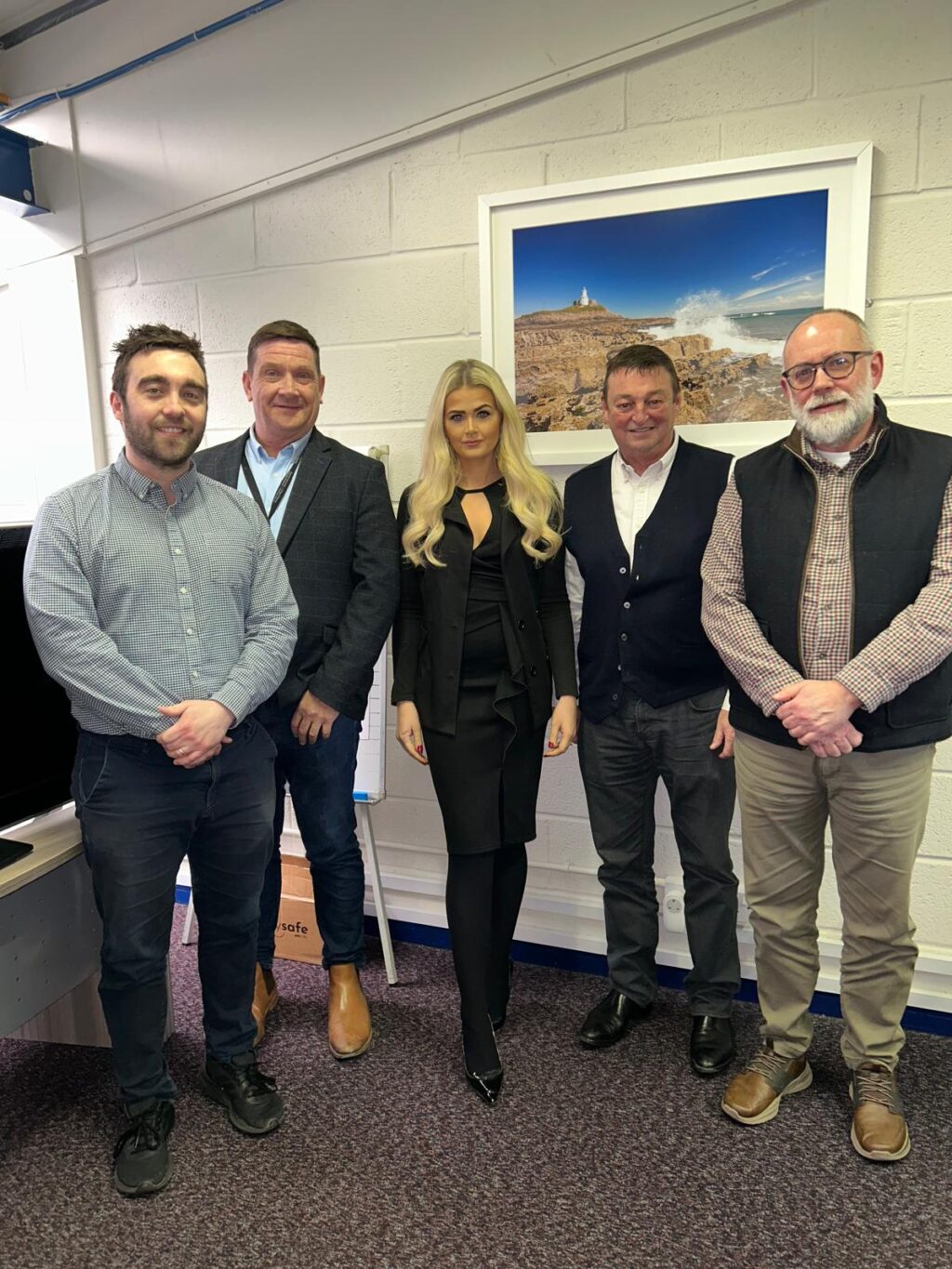Wearable tech to keep patients safe – Uni link-up boosts success for Swansea company

A collaboration with Swansea University experts has helped a local healthcare technology company move closer to their goal of revolutionizing patient care, by improving their research and ability to innovate, and securing a further £50,000 award to advance current technologies.
CPR Global Tech Ltd, a Swansea-based firm, make wearable devices that enable NHS and social care staff to monitor patients remotely.
Over the past two years they have collaborated with a team from the School of Management at Swansea University. The link-up was through a Knowledge Transfer Partnership (KTP), a way of bridging the gap between academic research and real-world innovation.
CPR was already a local success story, having won the prestigious Queen’s Award for Enterprise on two occasions.
Their wearable devices help to protect vulnerable people and reassure their carers and relatives. They help keep people out of hospital and residential care, giving them the dignity of an independent life at home. The company also produce call blockers to keep scammers at bay.
They work closely with healthcare providers and care homes. Their products also help police and support organisations searching for missing people, as well as lone workers who can report their location and discreetly call for help if they need it.
Like all successful organisations, CPR are always looking for ways to improve, which is where the collaboration with the Swansea University team came in.
Led by Dr Daniel Rees and Prof Nick Rich, the Swansea team brought in extensive expertise in management, leadership and innovation. Working closely with the company, they were able to assess CPR’s ideas from an outside perspective. They could also offer insight into changing technological infrastructure – so vital for their products – as well as current and possible future markets they could explore, such as the third sector and local authorities. Dr Clive Thomas has played a pivotal knowledge transfer role between Swansea University and the industry partner.
The Swansea team also advised on the cultural aspects that are crucial for a company’s success, such as leadership styles and the internal shape of the organisation.
Successful outcomes from the collaboration included:
- £50,000 secured from the UK Government to collaborate with the National Physical Laboratory, unlocking data analytics potential for CPR’s Guardian III Personal Alarm.
- Welsh Government support obtained for a multi-site evaluation of the same product with NHS organisations and local authorities in Wales
- Improvements to CPR’s strategies in marketing and research and development
- Profile for the company and the collaboration through presentations at sector conferences and meetings
- Employment for four staff members and three interns, enhancing their experience and strengthening local networks
- Teaching resources, white papers and case studies that can be used to enhance academic and business learning.
Dr Daniel Rees of Swansea University School of Management said:
“I first engaged with CPR Global Tech during my time as an Innovation Technologist supporting research and innovation activities between the School of Management and the Medical School.
Following my first project with them I knew we had stumbled upon a great industry-academic collaborative research and innovation opportunity.
This Knowledge Transfer Partnership is a shining example of how we can bridge the gap between research and real-world innovation. By working closely with CPR Global Tech, we’re exploring tangible solutions that can revolutionise healthcare delivery through technology. The success of this project is a testament to the power of collaboration across sectors.”
Chelsea Davies, chief operating officer of CPR Global Tech Ltd, said:
“Collaborating with the All-Wales Intensive Learning Academy and Swansea University has provided invaluable insights into how wearable technologies can evolve to meet the changing needs of healthcare. This partnership has significantly enhanced our R&D and marketing strategies, bringing us closer to revolutionizing patient care.”





